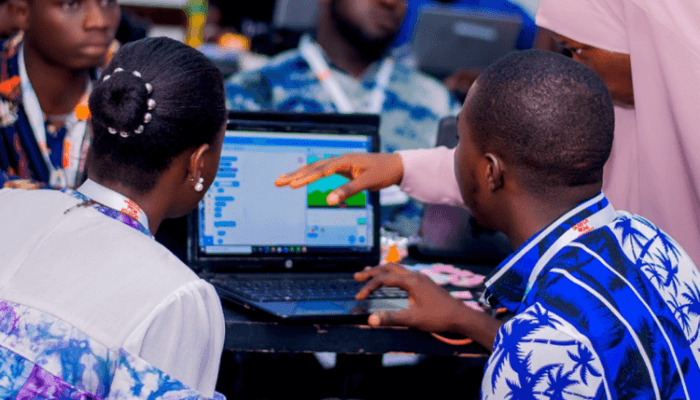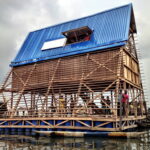Nigeria’s digital footprints are expanding fast. Across the country, internet penetration is growing, with at least 60% of the population projected to own smartphones this year.
Despite this progress, a startling 85% of Nigerian graduates still lack digital skills, highlighting a substantial gap between device ownership and digital literacy.
Affordability, not internet access, is the real challenge. The high cost of digital skills courses widens this gap. When faced with choosing between essential needs like food and investing in digital education amid today’s economic challenges, many Nigerians understandably prioritise the former.
Yet, in today’s tech-driven world, digital skills are no longer optional; they are essential for personal economic growth and empowerment.
Addressing this challenge is Women Techsters, a flagship program by Tech4Dev. Launched in 2019, the initiative targets women and girls across Africa, with a significant focus on Nigeria.
The program’s approach is straightforward but impactful. Women Techsters offers free training in digital skills like software development, product design, and data science. Partnering with Microsoft, they’ve adopted a hybrid learning model that mixes online classes with in-person mentoring. This ensures even those in areas with patchy internet access can participate.
The impact of Women Techsters is noteworthy. Between 2019 and 2023, the program trained over 100,000 women across Africa at little to no cost.
Women Techsters isn’t the only initiative tackling this challenge. The Digital Skills Initiative Nigeria (DSIN), a government program launched in partnership with Microsoft in 2021, has adopted elements of Tech4Dev’s model.
Despite some successes, challenges persist. Infrastructure gaps continue to hamper digital literacy efforts—only 33% of rural Nigerians have reliable internet access. Additionally, device affordability remains a significant barrier, with the average smartphone costing 40% of the monthly minimum wage and more.
Organisations like Tech4Dev can address these issues by establishing partnerships with local cybercafés and community centres to provide free computer access for training. Collaborations with device manufacturers could also help create affordable payment plans for participants.
A critical lesson here is that addressing Nigeria’s digital divide takes more than just skills training. It requires solutions that combine training, affordable technology, and reliable internet connectivity.
As Nigeria pushes toward its Digital Economy goals (2020-2030), programs like Women Techsters demonstrate that effective solutions must address both skills development and access barriers to ensure success. These initiatives are not just empowering individuals—they’re helping to build a tech-savvy workforce ready to compete on a global stage.
Nigeria’s digital future is bright. To ensure it reaches its full potential quickly, initiatives like these need to be supported and scaled. If Women Techsters and DSIN can achieve so much in just a few years, imagine what a fully connected, fully skilled Nigeria could look like.
Nigeria is witnessing rapid growth in digital access, with an expected 60% smartphone penetration this year. However, despite increased device ownership, 85% of graduates lack digital skills, largely due to the high cost of training courses. Programs aimed at addressing this disparity, such as Women Techsters, are making significant strides by offering free digital skills training to women and girls across Africa, particularly in Nigeria. Since its inception in 2019, Women Techsters has trained over 100,000 women with support from Microsoft through a combination of online and in-person mentoring.
The Digital Skills Initiative Nigeria (DSIN), launched by the government in collaboration with Microsoft, mirrors this approach. Nonetheless, obstacles such as inadequate internet access in rural areas and the high cost of smartphones, which can equal 40% of the monthly minimum wage, persist. Solutions involve partnerships with local cybercafés, community centers, and device manufacturers to offer free computer access and affordable payment plans for devices.
These initiatives underscore that bridging Nigeria’s digital divide requires more than skills training; it demands addressing technology affordability and reliable internet connectivity. By focusing on these comprehensive solutions, Nigeria aims to cultivate a tech-savvy workforce aligned with its Digital Economy goals (2020-2030), promising a bright digital future if adequately supported and scaled up.






